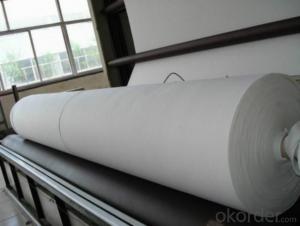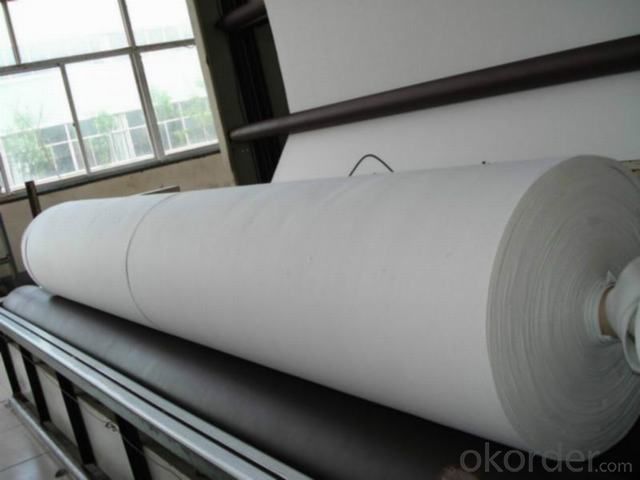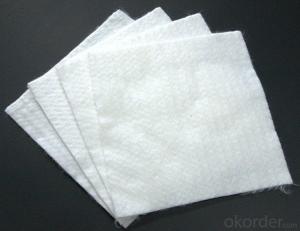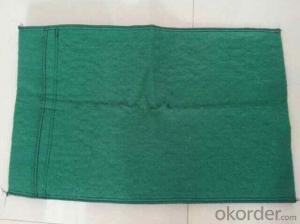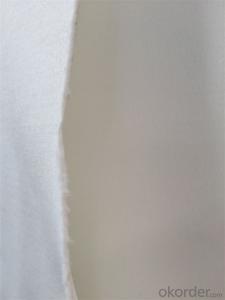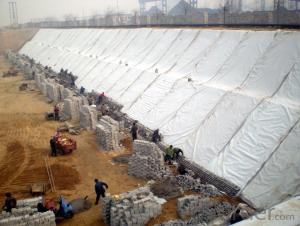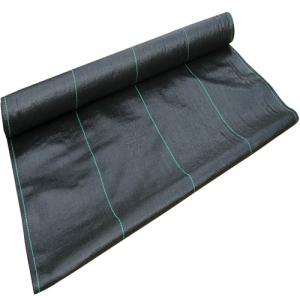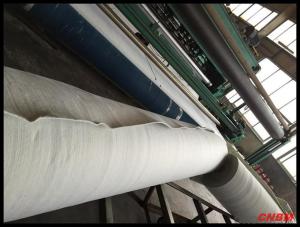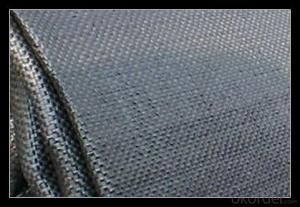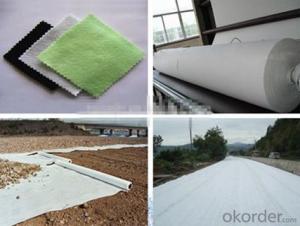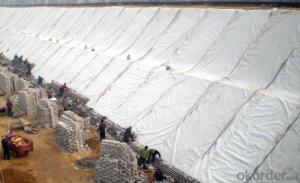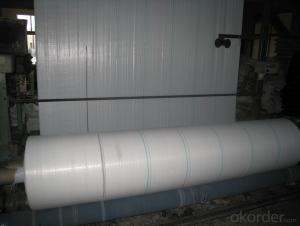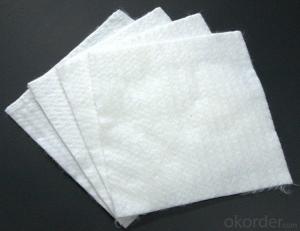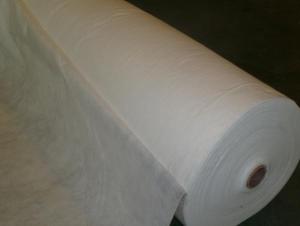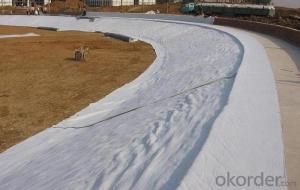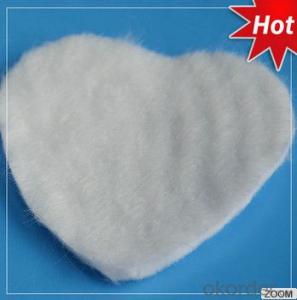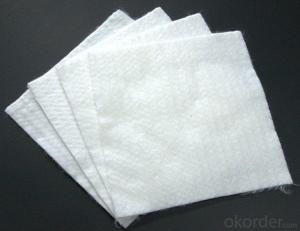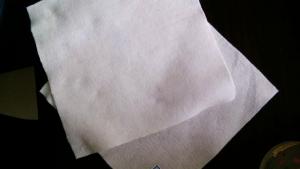Geotextile Filter Fabric Membrane - Excellent PP Woven Geotextile for Railway Construction
- Loading Port:
- Qingdao
- Payment Terms:
- TT OR LC
- Min Order Qty:
- 20000 m²
- Supply Capability:
- 1500000 m²/month
OKorder Service Pledge
OKorder Financial Service
You Might Also Like
Applications of PP Woven Geotextile for Railway Construction
1) Filtration
The filtration layer of the dykes, river canal, seacoast, concrete slope, retaining walls. At the same time of preventing the clay granule from passing, it allows the water and the gas pass through freely.
2) Separation
The isolation of the railway dregs and the roadbed, roadbed and the soft base, surface of the airdrome and parking lot and the groundsill, different dam materials. It isolates the soil and the gravel of two kinds different granule pathway from the groundsill or other buildings.
3 )Adding muscle
The highway, railway, soil-stone dam, breakwater, airport, backfill soil of retaining wall, slope protection, etc in which distributes the earth stress, prevents the side-displacement of the earth body and improves the earth body stability.
4 )Protection
It prevents the bank from being washed out, protects the bank and the bottom, prevents the water and soil from being washed away.
Technical Parameters of PP Woven Geotextile for River Construction
100 | 150 | 200 | 250 | 300 | 350 | 400 | 450 | 500 | 600 | 800 | NOTE | |
BASIS WEIGHT TOLERANCE (%) | -8 | -8 | -8 | -8 | -7 | -7 | -7 | -7 | -6 | -6 | -6 | |
THICKNESS ≥MM | 0.9 | 1.3 | 1.7 | 2.1 | 2.4 | 2.7 | 3.0 | 3.3 | 3.6 | 4.1 | 5.0 | |
TENSILE STRENGTH AT BREAKING ≥KN/m | 2.5 | 4.5 | 6.5 | 8.0 | 9.5 | 11.0 | 12.5 | 14.0 | 16.0 | 19.0 | 25.0 | MD&CD |
CBR PLUNGER STRENGTH ≥KN | 0.3 | 0.6 | 0.9 | 1.2 | 1.5 | 1.8 | 2.1 | 2.4 | 2.7 | 3.2 | 4.0 | |
TEARING STRENGTH ≥KN | 0.08 | 0.12 | 0.16 | 0.20 | 0.24 | 0.28 | 0.33 | 0.38 | 0.42 | 0.46 | 0.60 | |
BREADTH TOLERANCE (%) | -0.5 | |||||||||||
ELONGATION AT BREAKING (%) | 25-100 | MD&CD | ||||||||||
EOS O90mm | 0.07-0.2 | |||||||||||
VERTICAL PERMEABILITY (CM/S) | K×(101~~103) | K=1.0-9.9 | ||||||||||
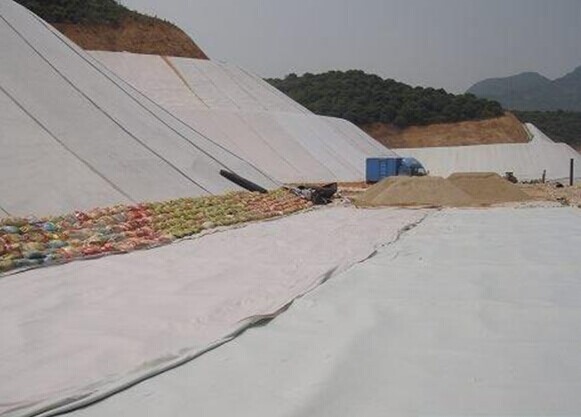
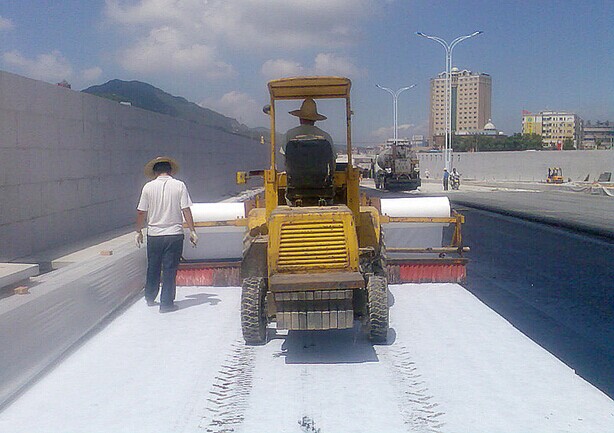
- Q: How do geotextiles affect soil compaction?
- Geotextiles can help reduce soil compaction by acting as a barrier between the soil and external forces. They distribute load and stress more evenly, preventing excessive compaction by promoting better soil structure and drainage.
- Q: Can the nonwoven geotextile be used to hold the soil
- Yes, the soil is not lost on the line, ground watering, if the balcony need to consider good health problems. More vegetables on the issue of "pan rice race vegetables Q & A network
- Q: What are the factors to consider when maintaining geotextiles?
- When maintaining geotextiles, there are several factors to consider. Firstly, it is important to regularly inspect the geotextiles for any signs of damage or wear. This includes checking for tears, holes, or fraying, as well as monitoring the overall condition of the material. Secondly, it is crucial to properly clean the geotextiles to prevent the buildup of dirt, debris, or organic matter that can compromise their effectiveness. This may involve using appropriate cleaning methods such as gentle washing or vacuuming. Additionally, considering the environmental and weather conditions in the specific location where the geotextiles are installed is essential. Extreme temperatures, UV exposure, and moisture levels can impact the durability and longevity of the material, so appropriate protective measures should be taken to mitigate these factors. Lastly, regular maintenance should include reassessing the performance of the geotextiles and their compatibility with the intended application. This may involve consulting with experts or conducting periodic testing to ensure that the geotextiles continue to meet the required standards and objectives. Overall, diligent inspection, cleaning, protection, and evaluation are key factors to consider when maintaining geotextiles.
- Q: White geotextile surface from the particles?
- First of all, to see your problem after I went to the workshop to see the next, geotextile surface is generally not from the particles. Later, after I carefully looked and found that the geotextile surface occasionally there will be a little white dot-like material, about 0.2-0.5mm in diameter, a square meter of geotextile above will not have more than five such particles, which may With the geotextile fiber, if the particles are not a lot of words will not affect the quality of geotextile products. Suggest that you do not have to worry about it.
- Q: What kind of geotextile is used to repair the road?
- Call one three seven to understand three one two one two to ensure that the quality of price satisfaction
- Q: How do geotextiles contribute to green building certifications?
- Geotextiles contribute to green building certifications by providing sustainable and eco-friendly solutions for various construction applications. They can help improve stormwater management, erosion control, and soil stabilization, reducing the environmental impact of construction projects. By incorporating geotextiles in building designs, projects can meet the requirements of green building certifications that prioritize sustainable practices and materials.
- Q: What are the disadvantages of using geotextiles?
- One disadvantage of using geotextiles is their potential to degrade over time due to exposure to UV rays and other environmental factors. This degradation can reduce their effectiveness and lifespan. Additionally, geotextiles may not be suitable for all soil types or site conditions, and improper installation or selection can result in reduced performance. Lastly, the cost of geotextiles can be relatively high compared to other erosion control or soil stabilization methods, which may limit their affordability for some projects.
- Q: Why do you want to add 1 to the amount of geotextile
- There are overlapping area and loss, I am specializing in the production of geotextiles
- Q: What are the specifications for geotextiles in stormwater management projects?
- The specifications for geotextiles in stormwater management projects vary depending on the specific requirements of the project. However, some common specifications include the type and thickness of the geotextile, its permeability, tensile strength, and durability. Additionally, the specifications may also outline the installation methods and quality control measures to be followed during the project.
- Q: How are geotextiles used in civil engineering projects?
- Geotextiles are commonly used in civil engineering projects for various purposes such as soil stabilization, erosion control, drainage management, and filtration. These synthetic fabrics are placed in the soil to reinforce it, prevent erosion, filter water, separate different layers of soil, and improve the overall performance and longevity of the project. They are versatile, cost-effective, and environmentally friendly solutions that help enhance the stability and functionality of civil engineering structures like roads, embankments, retaining walls, and landfills.
Send your message to us
Geotextile Filter Fabric Membrane - Excellent PP Woven Geotextile for Railway Construction
- Loading Port:
- Qingdao
- Payment Terms:
- TT OR LC
- Min Order Qty:
- 20000 m²
- Supply Capability:
- 1500000 m²/month
OKorder Service Pledge
OKorder Financial Service
Similar products
Hot products
Hot Searches
Related keywords
